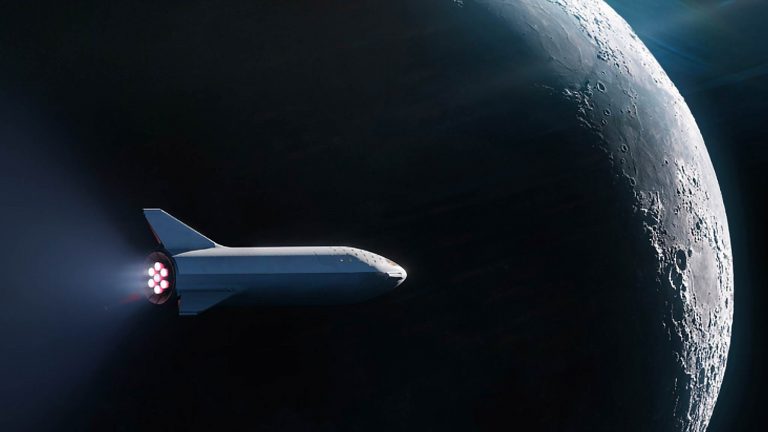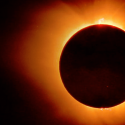Space tourism is happening now. Soon enough, you might be able to take your own vacation into the cosmos.
What would your travel experience be like? What would you see? And how much would it cost?
Several companies are offering up an authentic astronaut experience. 12 days up in space. Growing your own food. Hanging out on the holodeck. Incredible views, not to mention being in zero gravity the whole time! They may even build space condos! Imagine your vacation home being on the moon?
Sounds like fun right? But hold on… how much will this cost again?
A space vacation is not going to be cheap; let’s hope you have deep pockets. A 12-day mission will cost you $9.5 million. And hopefully, you don’t have a job either, because in order to go up into space you’ll need to complete a three-month training course beforehand.
If you’re looking for something a bit more luxurious, book your getaway in a space hotel. A Russian company is developing a hotel attached to the International Space Station. It’ll come with four bedrooms, massive windows, hygiene facilities and even Wi-Fi for all your inevitable Instagram selfies.
Think edge walking on a tall building is exciting? Well, how about a spacewalk? Companies plan to let passengers venture outside the Space Station and walk around. They will have a guide, as well as a suit that has it’s own personal rocket propellers.
Aspiring astronauts can stay here for up to a month… if they have $60 million to spare. Not worth that much?
Don’t worry, you still have other options. That is if you happen to have a cool $250,000 lying around. For that price, companies will take you up into space for a couple of minutes.
Enough to see some beautiful sites and experience a short burst of zero gravity. Maybe if this option gets a little cheaper, thrill-seekers will choose it over skydiving: it’ll only require one day of training. The best part? You don’t need to wait. Flights like this are happening right now.
If you’re not interested in just hanging out in space and want to go on an adventure, maybe you’ll choose to travel with SpaceX. In 2023, the company is bringing a group of artists to space for a six-day trip around the Moon. Maybe after that, they’ll open it up to the public and you’ll be able to take your own trip!
But let’s not get too excited. As of now, no companies are actually planning to land you on the Moon. And Mars isn’t even in the conversation; that’s too expensive, too dangerous, and should probably be left to the professionals for now.
All these trips sound like fun if you have the money, but let’s be clear that they have the potential to be extremely dangerous. Apart from something going wrong on the Space Station, you’d also have to worry about your body.
If not adequately conditioned, or in good health, you could experience a heart attack or fainting, and that’s before you even get to space. Once you’re there, you’ll experience extreme disorientation. You won’t know what’s up or what’s down. And oh yeah, you’ll probably be throwing up. A lot.
Another thing passengers will need to worry about is space radiation. Passengers may experience more radiation than the average astronaut because of where they’ll be traveling. Not only that, but these spaceships may not be equipped with radiation protection areas. NASA has one, but who’s to say if these upstart space travel agencies will have them?
Exposure to too much radiation can cause cancer and overall damage to your body. Luckily, the chances of getting significantly hurt by it are slim, but it’s not something that travel insurance is likely to cover.
In the past 50 years, only 550 people have been up into space, and only seven of them were private citizens. Could you be the eighth? Probably not, at least not for another decade or so. Space tourism right now is only for the rich. But it’s slowly getting more accessible, and one day you might be able to order room service with a stunning view of the Earth.
Sources
- “How to become a space tourist & companies(almost) ready to launch”. 2018. Stefanie, Waldek, popsci.com. Accessed November 20 2018.
- “Russia’s Plan To Build A Luxury Hotel On The ISS”. Anatoly, Zak, 2017. Popular Mechanics. Accessed November 20 2018.
- “About | Orion Span | Aurora Station”. 2018. Orion Span | Aurora Station. Accessed November 20 2018.
- “Everything You Need To Know About Space Tourism: Richard Branson, Elon Musk And Jeff Bezos’ Planned Flights Into Space”. Svetlik, Joe, 2018. bt.com. Accessed November 20 2018.
- “Space Tourism“. 2018. en.wikipedia.org. Accessed November 20 2018.
- “Six Reasons Why Space Tourism Matters”. Hollingham, Richard. 2018. bbc.com. Accessed November 20 2018.
- “Dearmoon Project”. 2018. en.wikipedia.org. Accessed November 20 2018.
- “How Space Tourism Works”. Kevin, Bonsor, Howstuffworks. Accessed November 20 2018.
- “Spacex’S Moon Loop Will Affect Passengers’ Health — Here’S How”. Rachel, Becker, 2018. The Verge. Accessed November 20 2018.















